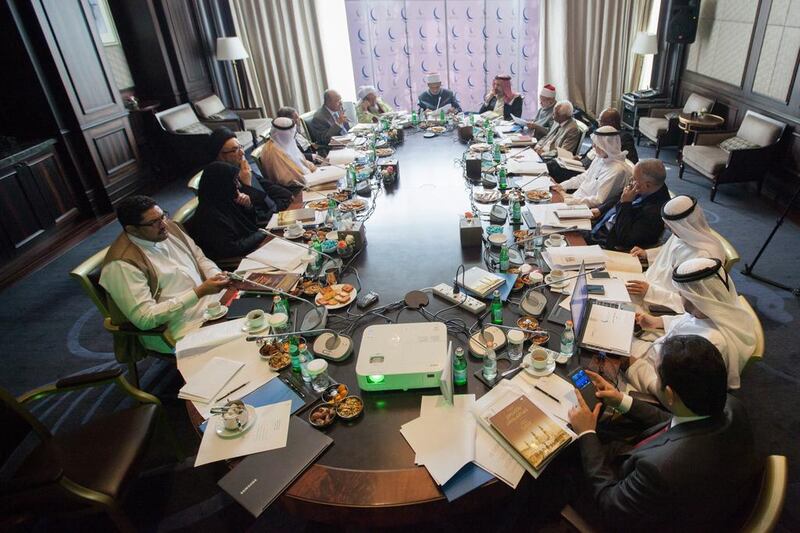ABU DHABI // A council of Muslim scholars wants to modernise the way Islam is taught in schools to fight misconceptions and reinforce the faith’s peaceful messages.
The Muslim Council of Elders has met in the capital to discuss a strategy that also includes sending peace delegations to global hotspots “to stop the game of death”, and further improving interfaith discussions.
Dr Mohammed Shihab, former Indonesian minister of religious affairs, said principles should be taught in ways that followed the basics of Islam but were more relevant to modern times.
This should include replacing outdated texts and bringing them into line with scientific knowledge, Dr Shihab said.
“In Indonesia, I was at a scientific educational institution that teaches from old, mutilated books that don’t flow with current situations and scientific development,” he said.
Abdullah bin Bayyah, president of the Forum for Promoting Peace in Muslim Societies, said delegations would be sent to areas of conflict to correct misunderstandings of Sharia and explain that these “bloodbaths” benefited no one.
Also under the council’s strategy, workshops and forums would be organised to conduct interfaith discussions.
“The goal is to reach an agreement that Islam is innocent of the terrorism going on,” said Dr Kaltham Al Muhairi, professor at Zayed University’s Institute of Islamic World Studies.
“Dialogue also aims to make other parties recognise the right of Muslims to portray the true image of Islam.”
Dr Shihab said that interfaith activities should go further than talk and bring together young people from all religions to work for the good of society.
With regards to education, he said curriculums should have as a main focus the Prophet Mohammed’s merciful teachings, rather than those more relevant to more ancient times.
“We have some old books that were written during the conflict between Christianity and Islam – we should not focus on that,” Dr Shihab said. “This does not mean we will neglect it.”
He said some Quranic instructions were also translated out of context, contradicting modern law and order, without understanding how the laws could be applied.
“The interpretation of some verses and hadiths should be reconsidered,” Dr Shihab said.
For example, the Quran mentions hitting wives in a certain situation but he said this should not be translated literally.
“The Quran refers to walking on the ground as hitting the ground, but that does not mean literally hitting it,” he said.
Another example is the penalty of lashing under Sharia.
“Lashing does not mean that the whip should reach the flesh,” Dr Shihab said. “It could mean that the whip only touches the skin.
“Correct interpretation could persuade others of the validity of the Quran and deny other perceptions.”
Mr bin Bayyah said the peace delegations would engage in dialogue from which everyone could benefit, “whether it is ISIL or other than ISIL”.
They should consist of elite intellectuals who could “face the current of violence and random conflict”, he said.
“Searching for rights during a destructive war will not lead the ummah [community] to anything,” Mr bin Bayyah said. “It will end with destruction and everyone will be defeated.
“Even if one imagines he is victorious, there is no victory if the ummah is burning.”
It is the job of scholars, intellects, universities and good politicians to act as “firefighters in this deadly atmosphere”.
“Many of the disputes that we think of as internal are in fact due to foreign interference, so it requires two things: to talk to the doers on the land and those behind them,” Mr bin Bayyah said.
The council reviewed its strategic plan in a closed meeting on Thursday.
hdajani@thenational.ae







